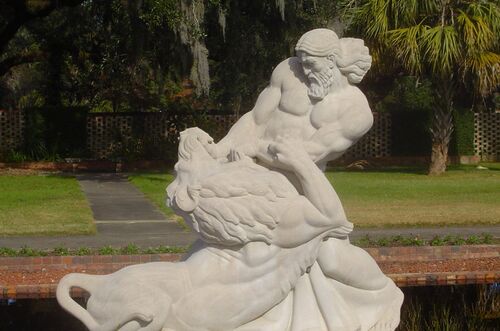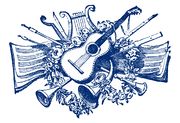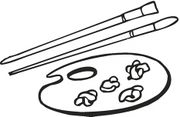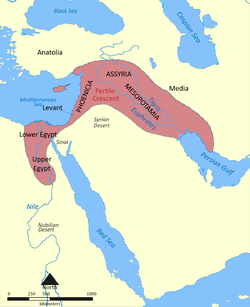Difference between revisions of "Category:Judges (subject)"
| (12 intermediate revisions by the same user not shown) | |||
| Line 5: | Line 5: | ||
{{WindowMain | {{WindowMain | ||
|title= [[Hebrew Bible Studies]] -> ( | |title= [[Hebrew Bible Studies]] -> (5) [[Judges]] | ||
|backgroundLogo= Bluebg_rounded_croped.png | |backgroundLogo= Bluebg_rounded_croped.png | ||
|logo= Logo.png | |logo= Logo.png | ||
|px= 38 | |px= 38 | ||
|content= [[File: | |content= [[File:Judges.jpg|500px]] | ||
According to the Hebrew Bible, the '''Judges''' were political and military leaders of the [[Twelve Tribes]] of Israel before the establishment of the monarchy. | According to the Hebrew Bible, the '''Judges''' were political and military leaders of the [[Twelve Tribes]] of Israel before the establishment of the monarchy. | ||
< ''[[Hebrew Bible Studies]]'': (1) [[Progenitors]] - ( | < ''[[Hebrew Bible Studies]]'': (1) [[Creation]] - (2) [[Progenitors]] - (3) [[Patriarchs]] - (4) [[Exodus]] - (5) [[Judges]] - (6) [[Kings]] -- ''[[Babylonian Exile]]'' -- ''[[Second Temple Studies]]'' > | ||
< ''People'' : The [[Book of Judges]] mentions twelve Judges: [[Othniel]], [[Ehud]], [[Shamgar]], [[Deborah]], [[Gideon]], [[Tola]], [[Jair]], [[Jephthah]], [[Ibzan]], [[Elon]], [[Abdon]], and [[Samson]]. The First [[Book of Samuel]] mentions [[Eli]] and [[Samuel]], as well as [[Joel]] and [[Abiah]] (two sons of Samuel). The [[Books of Chronicles]] mentions [[Kenaniah]] and his sons, Amariah and Zebadiah (son of Ishmael). | |||
* This page is edited by [[Gabriele Boccaccini]], University of Michigan. | * This page is edited by [[Gabriele Boccaccini]], University of Michigan. | ||
}} | }} | ||
| Line 62: | Line 39: | ||
|logo= contents.png | |logo= contents.png | ||
|px= 38 | |px= 38 | ||
|content= [[File:Literature.gif| | |content= [[File:Literature.gif|180px]] | ||
}} | }} | ||
{{WindowMain | {{WindowMain | ||
| Line 69: | Line 46: | ||
|logo= history.png | |logo= history.png | ||
|px= 38 | |px= 38 | ||
|content= [[File:Music.jpg| | |content= [[File:Music.jpg|180px]] | ||
}} | }} | ||
{{WindowMain | {{WindowMain | ||
| Line 76: | Line 53: | ||
|logo= history.png | |logo= history.png | ||
|px= 38 | |px= 38 | ||
|content= [[File:Cinema.jpg| | |content= [[File:Cinema.jpg|180px]] | ||
}} | }} | ||
{{WindowMain | {{WindowMain | ||
| Line 83: | Line 60: | ||
|logo= history.png | |logo= history.png | ||
|px= 38 | |px= 38 | ||
|content= [[File:Art2.jpg| | |content= [[File:Art2.jpg|180px]] | ||
}} | }} | ||
|} | |||
|} | |||
== Overview == | |||
[[File:Fertile Crescent.png|thumb|250px]] | |||
Following the [[Conquest of the Land]] of Canaan by [[Joshua]] (traditionally dated around 1250 BCE) until the formation of the [[United Monarchy]] (traditionally dated around 1047 BCE), the ancient tradition of Israel claims that the [[Twelve Tribes]] formed a loose confederation. No central government existed but in times of crisis the people were led by ad hoc-appointed leaders known as ''Judges''. | |||
Historically, the Israelites emerged into the historical record in the last decades of the 13th century BCE, at the very end of the Late Bronze Age. The first reference to "Israel" appears in the [[Merneptah Stele]] (around 1207 BCE) in a list of Canaanite tribes subjugated by the Pharaoh in a military campaign in the region. The land of Canaan was poor but strategically important; it was the bridge between the two superpowers of antiquity, and consequently, the battlefield of their ambitions of expansion. | |||
The [[Book of Judges]] mentions twelve Judges: [[Othniel]], [[Ehud]], [[Shamgar]], [[Deborah]], [[Gideon]], [[Tola]], [[Jair]], [[Jephthah]], [[Ibzan]], [[Elon]], [[Abdon]], and [[Samson]]. The First [[Book of Samuel]] mentions [[Eli]] and [[Samuel]], as well as [[Joel]] and [[Abiah]] (two sons of Samuel). The [[Books of Chronicles]] mentions [[Kenaniah]] and his sons, Amariah and Zebadiah (son of Ishmael). The stories related to these largely mythical characters offer a glimpse to the history, culture and religion of the Israelite people in the Late Bronze Age. | |||
====External links==== | |||
* [https://en.wikipedia.org/wiki/Biblical_judges Wikipedia.en] | |||
Latest revision as of 07:26, 12 October 2020
|
< Hebrew Bible Studies: (1) Creation - (2) Progenitors - (3) Patriarchs - (4) Exodus - (5) Judges - (6) Kings -- Babylonian Exile -- Second Temple Studies > < People : The Book of Judges mentions twelve Judges: Othniel, Ehud, Shamgar, Deborah, Gideon, Tola, Jair, Jephthah, Ibzan, Elon, Abdon, and Samson. The First Book of Samuel mentions Eli and Samuel, as well as Joel and Abiah (two sons of Samuel). The Books of Chronicles mentions Kenaniah and his sons, Amariah and Zebadiah (son of Ishmael).
Judges -- Sources |
|
Overview
Following the Conquest of the Land of Canaan by Joshua (traditionally dated around 1250 BCE) until the formation of the United Monarchy (traditionally dated around 1047 BCE), the ancient tradition of Israel claims that the Twelve Tribes formed a loose confederation. No central government existed but in times of crisis the people were led by ad hoc-appointed leaders known as Judges.
Historically, the Israelites emerged into the historical record in the last decades of the 13th century BCE, at the very end of the Late Bronze Age. The first reference to "Israel" appears in the Merneptah Stele (around 1207 BCE) in a list of Canaanite tribes subjugated by the Pharaoh in a military campaign in the region. The land of Canaan was poor but strategically important; it was the bridge between the two superpowers of antiquity, and consequently, the battlefield of their ambitions of expansion.
The Book of Judges mentions twelve Judges: Othniel, Ehud, Shamgar, Deborah, Gideon, Tola, Jair, Jephthah, Ibzan, Elon, Abdon, and Samson. The First Book of Samuel mentions Eli and Samuel, as well as Joel and Abiah (two sons of Samuel). The Books of Chronicles mentions Kenaniah and his sons, Amariah and Zebadiah (son of Ishmael). The stories related to these largely mythical characters offer a glimpse to the history, culture and religion of the Israelite people in the Late Bronze Age.
External links
Pages in category "Judges (subject)"
The following 68 pages are in this category, out of 68 total.
1
- == == 1450s == == ==
- == == 1500s == == ==
- Samson and the Lion (1525 Cranach), art
- Jephthes sive Votum (1544 Buchanan), play
- Samson and Delilah (1609 Rubens), art
- Samson Slaying the Philistines (1626 Riminaldi), art
- Samson and Delilah (1630 Stom), art
- Blinding of Samson (1636 Rembrandt), art
- Hannah Giving Her Son Samuel to the Priest (1645 Victors), art
- Jephte (1648 Carissimi), oratorio
- Hannah Presenting Her Son Samuel to the Priest Eli (1665 Eeckhout), art
- Samson Agonistes (1671 Milton), play
- Il Sansone (1677 Colonna / Balbi), oratorio
- Female Excellency; or, The Ladies Glory (1688 Burton), book
- La nascita di Samuele (1696 Casini), oratorio
- Sansone accecato dai Filistei (1700 Urio), oratorio
- Simson (1709 Graupner / Feind), oratorio
- Deborah (1733 Haendel / Humphreys), oratorio
- La Triunfante Debora (Deborah Triumphant / 1733 Picanyol), oratorio
- Jephtha (1737 Greene / Hoadly), oratorio
- Samson (1743 Haendel / Hamilton), oratorio
- Joshua (1748 Haendel / Morell), oratorio
- Jephtha (1752 Haendel / Morell), oratorio
- Infant Samuel (1776 Reynolds), art
- Samuel Learning from Eli (1780 Copley), art
- Samson and the Lion (1800 Kozlovsky), art
- Samson and the Lion (1842 Hayez), art
- Samson et Dalila (1877 Saint-Saëns / Lemaire), opera
- Josua (1890 Ebers), novel
- La Terre Promise (The Promised Land / 1900 Massenet), oratorio
- The Founders and Rulers of United Israel from the Death of Moses to the Division of the Hebrew Kingdom (1908 Kent), book
- Rahab, die Seherin von Jericho (1909 Treitel), novel
- Samson and Delilah (1911 Frenkel), short film
- Blinded Samson (1912 Corinth), art
- Samson (1914 MacDonald), feature film
- Samson and Delilah (1922 Collins), film
- Samson und Delila (1922 Korda), film
- Dèbora e Jaéle (1922 Pizzetti), opera
- Samson and Delilah (1927 Parkinson), film
- Rahab (1938 Subercaseaux), novel
- Nem Sansão nem Dalila (Neither Samson nor Dalilah / 1955 Manga), feature film
- The Scarlet Cord (1956 Slaughter), novel
- Der Topos der Nine Worthies in Literatur und bildender Kunst (The Topos of the Nine Worthies in Literature and Visual Arts / 1971 Schroeder), book
- The Harlot of Jericho (1974 Dial), novel
- Greatest Heroes of the Bible: Samson and Delilah (1978 Conway), TV episode
- Song of Deborah (1981 Ross), novel
- Joshua (1982 Boling, Wright), book
- Rahab (1982 Bremkamp), novel
- The Greatest Adventure: Joshua and the Battle of Jericho (1985 Patterson), animated TV short film
- The Greatest Adventure: Samson and Delilah (1985 Patterson), animated TV short film
- Deborah (1993 Shott), novel
2
- Unashamed (2000 Rivers), novel
- Jacob's Ladder (2003-04 Engel), TV series
- A Time to Love: Stories from the Old Testament (2003 Myers / Meyers), children's novel & art
- I Am...: Biblical Women Tell Their Own Stories (2005 Brenner), novel
- Rahab's Story (2005 Burton), novel
- Deborah's Story (2006 Burton), novel
- Jael's Story (2006 Burton), novel
- Rahab's Redemption (2006 Davis), novel
- The Book of Samson (2006 Maine), novel
- Daughter of Deliverance (2006 Morris), novel
- The Triumph of Deborah (2008 Etzioni-Halevy), novel
- Samson the Hero (2008 Wind), art
- Delilah (2009 Edghill), novel
- == == 2010s == == ==
- Pearl in the Sand (2010 Afshar), novel
- Delilah (2011 De Jong), novel
- This Scarlet Cord (2012 Wolf), novel
Media in category "Judges (subject)"
The following 3 files are in this category, out of 3 total.
- 1936 Connelly (film).jpg 200 × 284; 17 KB
- 1949 DeMille (film).jpg 330 × 498; 52 KB
- 2013 Downey (TV miniseries).jpg 349 × 500; 67 KB








